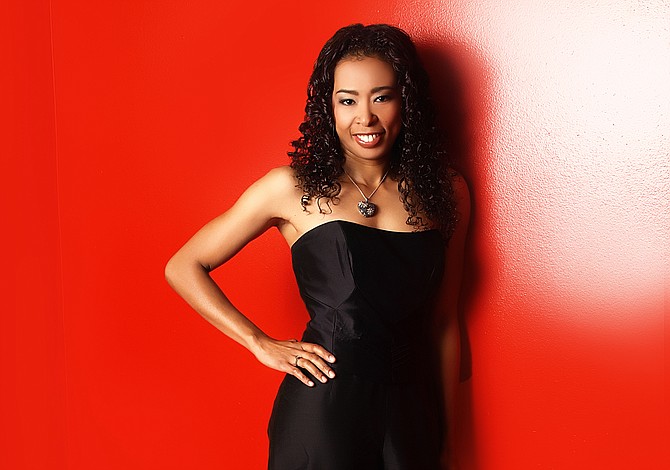A game of mixed sextets in rewarding Fortas Chamber program at the Kennedy Center

Sextets of Brahms and violist-composer Nokuthula Ngwenyama were performed at the Fortas Chamber Music program Wednesday night.
When you go to the trouble of putting together a string sextet, you may as well present a whole concert featuring it. That is what the Fortas Chamber Music Concerts series did Wednesday night in the Kennedy Center Concert Hall. Violinist Jaime Laredo and cellist Sharon Laredo Robinson, longtime resident Fortas artists, were joined by four other string players to perform three string sextets.
Laredo and Robinson formed part of a celebrated trio with pianist Joseph Kalichstein, who passed away last year of pancreatic cancer. The long-time artistic director of the Fortas series, Kalichstein was succeeded last month by violinist Jennifer Koh.
Wednesday’s concert bore the stamp of Kalichstein’s advocacy, as the second of his three programs this season to feature new music by violist and composer Nokuthula Ngwenyama. Her string sextet, Sexagesimal Celebration, was premiered in 2020 for the 60th anniversary of the Phoenix Chamber Music Society by five of the six musicians heard in this concert. In brief pre-concert remarks, Ngwenyama connected the piece to a fascination with the number 60 and its mathematical factors, reflecting number systems from ancient Mesopotamia.
The style of this piece, however, was broadly neoclassical, even consisting largely of two closely related eight-measure phrases repeated multiple times with small variations. The harmony remained loosely tonal, almost pop song-like in its simplicity, except for a couple moments of pitchless scraping on the strings of various instruments.
The opening motif, a syncopated pattern heard in all the strings, returned a couple of times, helping to create an appropriately festive tone. Occasional brief shifts of meter away from the square quadruple that predominated seemed to relate to the aforementioned mathematical proportions, although the numerical relationships were difficult to perceive without looking at the score. Ultimately, the piece left little lasting impression.
Johannes Brahms wrote his two string sextets earlier in life, but both contain a startling variety of textures and contrapuntal interplay. The String Sextet No. 1, completed in 1860 when Brahms was 27 years old, featured Milena Pajaro-van de Stadt on the first viola part. Formerly of the Dover Quartet, from which she stepped down last August, she applied a remarkable, plangent tone to her many solos at the top of the four lower string instruments, in the bass-leaning textures Brahms so favored.
On the first violin part, Laredo’s intonation went astray far too often, especially in the high register and at louder dynamics. On the first cello part, Robinson excelled in longing lines, like the deep-set cello and viola variation in the second movement, combined with her brother, Keith Robinson, a solid anchor on the second cello’s pedal points, and Ngwenyama, ably seconding Pajaro-van de Stadt on the paired viola parts.
A genteel restraint marked the tempo choices of all four movements, making the concise Scherzo bouncy and not needing excessive speed to give the sense of Animato to the Trio section. Likewise the accelerando ending of the Finale, featuring the lively playing of Pajaro-van de Stadt, seemed much more striking since it began so calmly.
The ensemble had more consistent results in Brahms’ String Sextet No. 2, composed a few years after the first one. After intermission, Laredo seemed to overextend himself less, resulting in better intonation, and his tone melded beautifully with Bella Hristova, a bit of luxury casting on the second violin part. The second and third movements proved the highlights of the evening, a tender take on the Scherzo and a warm ensemble glow for the slow movement.
Although the violin and cello pairings remained where they had been on the first half, the violists switched seats. Ngwenyama, a remarkable violist who won the Young Concert Artists competition in 1994, produced a gorgeous solo sound on the 1597 Antonius and Hieronymus Amati viola in her hands. The finale of this sextet, pulsating with activity, spotlighted the independence of these six players, united in their pursuit of the score’s brilliant wit.
Fortas Chamber Music Concerts presents Sō Percussion and vocalist Caroline Shaw in music by Negrón, Wolfe, and Shaw 7:30 p.m. January 30. kennedy-center.org


